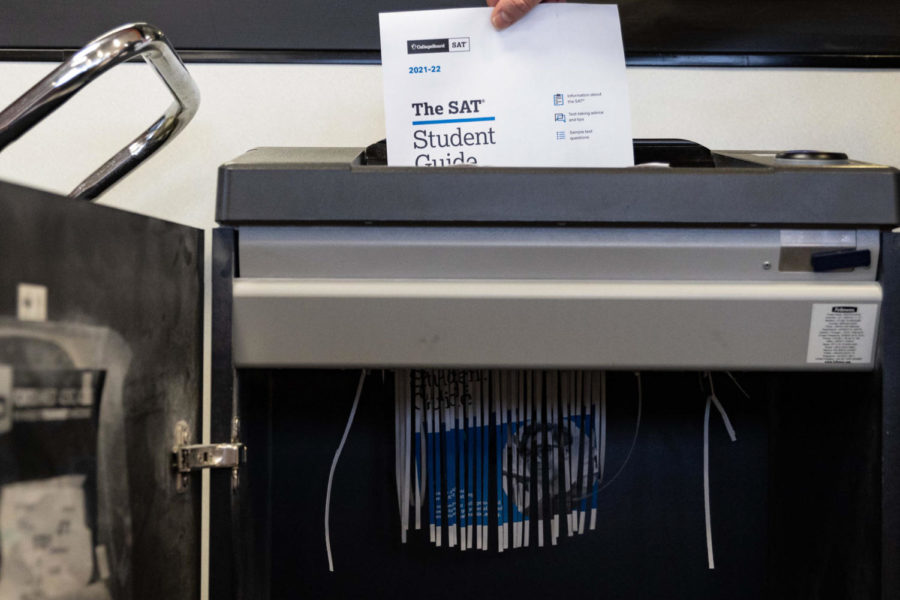Putting it to the test
Colleges make standardized testing optional for applicants
The College Board recently announced that the format for the SAT will be shorter and entirely online beginning in 2024.
February 16, 2022
After constantly writing personal essays, submitting transcripts and counting up community service hours, there is only one more component left to complete the college application process: submitting a standardized testing score, but there was one problem.
In 2020, many testing centers for the ACT and SAT shut down because of COVID-19, causing panic for seniors. In response, a significant number of universities made it optional to send in scores, and that is still the case today.
Many believe that the decision made is taking a step toward the right direction. This way, students are able to display other accomplishments instead of relying on one score to get into a good college.
“I think now it’s just going to be a piece of the whole holistic review for a student, so it gives an opportunity for students to showcase other things besides just their ACT/SAT score,” said Bettie Stark, Vice Principal of College and Career Readiness.
Universities will now mainly look at the classes students take and how well they did, how involved they were in different organizations and teacher recommendations. The ACT/ SAT score will just be a small part of the overall decision.
“They’re going to look at their course curriculum, extracurricular activities and honors awards,” Stark said. “All those different things will have more weight now. An ACT or SAT score will just be a piece of that application process, and I think that’s a good thing.”
College Board recently announced that major changes are being made to the SAT starting in 2024. These new adjustments will accommodate students who might not be able to go to the testing centers.
“College Board announced that they are changing the format of the exam in 2024 to where it is going to go completely digital,” Stark said. “It’s going to be a shorter test with shorter reading passages and hopefully a better test for students in the future. I think it would be more relevant for today’s students.”
Even though we don’t know what the future holds, neither of the tests are going away soon. It is still recommended that students at least try to take it.
“I do recommend taking the SAT/ACT even though it is optional,” academic adviser Patty McDonald said. “The tests are good indicators of where your strengths and weaknesses are, and if you make a really good score it could help in the decision process of being accepted to the colleges you are applying to. If your score is not good, you do not have to send it in.”
“What’s your ACT score?” No doubt every student has heard this question before, but why is it this question to begin with? Are there not 2 equal counterparts in terms of standardized tests? Why do we tend to look past the SAT in this area and focus our attention on the counterpart, the ACT?
The tests have each gained individual levels of popularity in different states, with the coastal and urban areas preferring the SAT, and the midwest and rural areas opting for the ACT. But which is harder?
This question is in and of itself a paradox. If (and that’s a big if) there’s a minor difference in the difficulty levels of these tests, it’s irrelevant, because colleges grade these scores each year based on everyone who takes them. So even if the ACT or SAT is “easier” than the other, it was likely easier for everyone on that specific day. College’s are interested in your score as compared to others taking the same test, not those with different tests on different days.
That being said, there are distinct differences between each exam. The SAT is split into Reading, Writing & Language, and Math, and the ACT is split into English, Math, Reading, Science Reasoning, and Essay (which is Optional). The timing and flow of these sections is also distinctly different between tests, and it’s likely one will find one slightly better suited to them than the other. A good bet would be to take both the ACT and SAT your junior year, and then retake the one you scored in the higher percentile of until you achieve the score you plan on sending in to colleges.
The most important thing to remember however, is that standardized test scores will neither doom or save a college application, so there’s no reason to worry yourself sick.





















